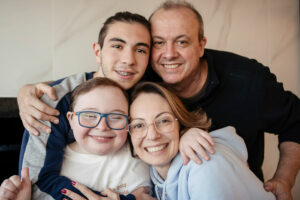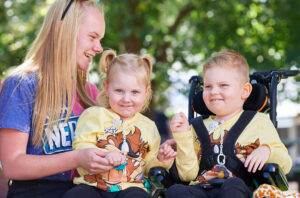
Supporting your child’s behaviour
Helping children understand their emotions and regulate their behaviour takes work.
Children do well if they can. Behaviour is a form of communication. A child might be communicating ‘I’m hurt’, ‘I don’t want to’ or ‘I’m overwhelmed’ through their behaviour. You can get support to help your child learn how to understand their emotions and behaviour.
How to get help
1. Check if there is an underlying health issue or concern
Health issues and pain can impact children’s behaviour, so it’s always worth checking with your GP or dentist to see if there is an underlying issue. Behaviour can also be a sign of bullying or major changes at home or school. Ask your child and the adults in their life if something is upsetting them.
2. Talk to a trusted professional
Talk about your concerns with a trusted professional such as your GP, Maternal Child Health nurse, paediatrician, or therapist. They can help you work out any major concerns and put in place steps to support your child’s behaviour.
3. Focus on building communication skills
For children with little or no speech, helping them communicate can help reduce behaviour. Providing
Augmentative and Alternative Communication (AAC) can help. AAC can include key word sign, communication boards and text to speech apps. You can get support for AAC from a speech therapist as part of your child’s NDIS Plan.
4. Behaviour support in your child’s NDIS plan
You may be able to get behaviour support in your child’s NDIS Plan. Support can include therapy, a Behaviour Support Plan, training and strategies to support your child and family.
5. Behaviour support at school
If you or your child’s teacher has concerns about your child’s behaviour at school, you may be able
to get behaviour support at school. This may include working with your child’s Student Support Group to develop a Behaviour Support Plan. If your child has a Behaviour Support Plan developed by an NDIS-funded therapist, share this with your child’s school.



